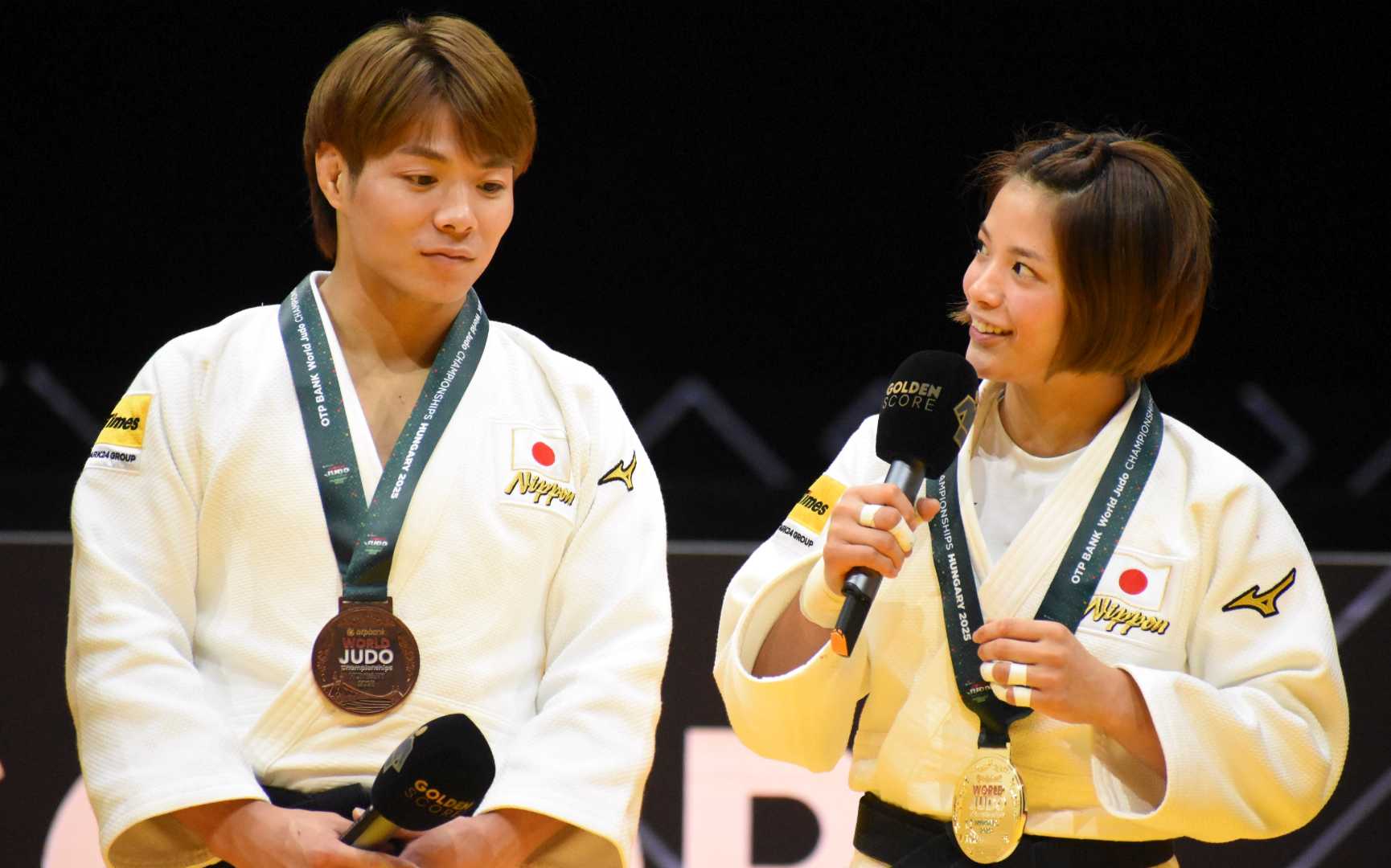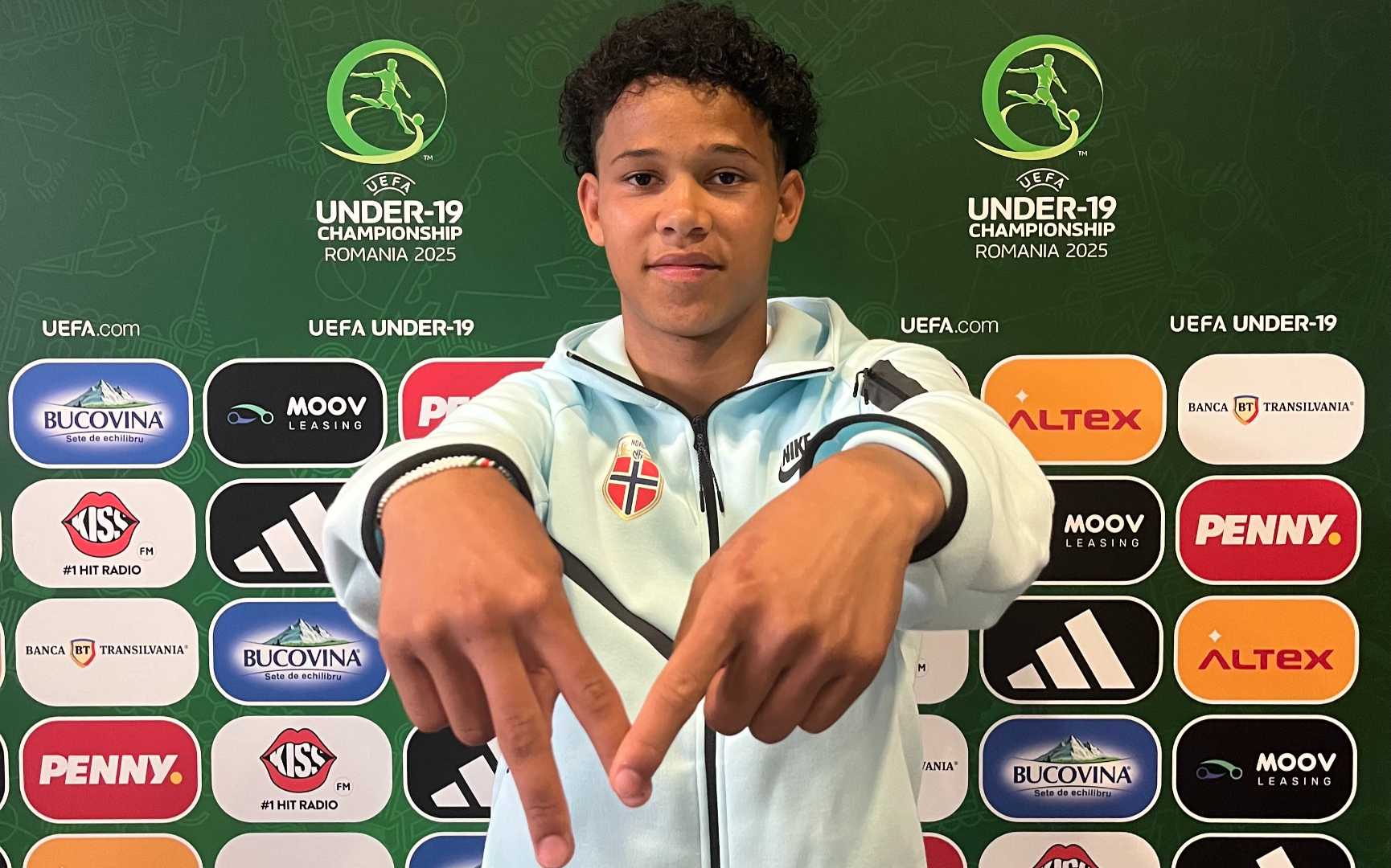All News

The Abe siblings shine again, but this time, it’s Uta on top
BUDAPEST, June 15, 2025 – At the 2025 World Judo Championships in Budapest, the spotlight once again found its way to the Abe siblings, but this time, it illuminated a shift in narrative. Uta Abe returned to the top of the world with a commanding performance in the -52 kg category, while her older brother Hifumi, long considered the immovable force of the -66 kg division, faced a rare setback. In the end, both walked away with medals, but it was Uta who wore gold and Hifumi who had to settle for bronze in a tournament that tested the resolve of both champions.
FIFTH WORLD TITLE Uta’s path to her fifth world title was nothing short of spectacular. After dispatching Sofia Asvesta (CYP) with uchi-mata in just over a minute, she faced her stiffest challenge in the quarter-final against Amandine Buchard of France. It was a battle of nerves and skill that extended into golden score, where Buchard was eventually penalized for an illegal leg grab—giving Abe the win. From there, she regained her rhythm, needing just seconds to throw Kelly Deguchi (CAN) with kosoto-gake, and then Mascha Ballhaus (GER) with a stunning drop sode-tsurikomi-goshi.
The final against Kosovo’s Olympic champion Distria Krasniqi was a high-stakes tactical battle. The first three minutes saw both fighters neutralising each other’s grips and probing for weakness. But with less than a minute left, Uta dropped into a perfectly-timed seoi-otoshi, lifting Krasniqi onto her back for ippon. It was a breathtaking finish, greeted with a huge smile from Abe, equal parts joy and relief. “My plan today was to do my own judo and no matter who I would meet, the only goal was to win,” she said, her face beaming under the lights of the Papp László Sportaréna.
AN UPSET While Uta soared, Hifumi’s day took an unexpected turn. Entering the tournament as the undisputed favourite in the -66 kg category, the reigning Olympic champion was expected by many to cruise to another world title. Instead, the judo world was left stunned in the quarter-final when he was thrown for ippon by Obid Dzhebov of Tajikistan.
Dzhebov, known for his extreme flexibility and unpredictable attacks, caught Abe during a high-stakes exchange with a beautifully executed uchi-mata. Abe attempted to counter, but Dzhebov anticipated the movement and drove through the throw. The arena fell silent for a moment—one of the most dominant figures in judo had been toppled. It was the surprise of the day, and it sent shockwaves through both the audience and the Japanese delegation. “It was a moment I didn’t expect,” admitted a subdued Abe later. “But I had to regroup quickly. I changed my goal to just get the medal because the meaning of getting bronze or not is totally different.”
That change in mindset was evident in the repechage and bronze medal match. Hifumi returned to the tatami with steely focus, defeating Orlando Polanco (CUB) with a clinical o-uchi-gari for ippon. Despite the disappointment of falling short of gold, his professionalism and poise remained exemplary—an embodiment of judo’s spirit and values.
HISTORIC DAY FOR TAJIKISTAN. Meanwhile, Dzhebov’s momentum carried him to the bronze medal podium. After losing in the semifinal to his compatriot Nurali Emomali, he rebounded against Walide Khyar (FRA), scoring waza-ari with uchi-mata and then sealing the match with a second throw. For the Tajik team, it was a historic day: Emomali took silver after a tight final against Japan’s other representative, Takeshi Takeoka.
Takeoka, who had earned silver at the previous year’s championships, delivered the performance of his career. With the spotlight unexpectedly turned on him following Abe’s early exit, the pressure was immense, but he thrived in it. In the final against Emomali, he scored a yuko with ko-soto-gari and held off all attacks with composure and tactical maturity. “He never wavered,” said one coach. “He looked every bit the champion.” With ippons against Polanco, Khyar, and Hakim Agamammedov (TKM) earlier in the day, Takeoka’s ascent to the top of the podium was as dominant as it was well-earned.
Budapest proves to be a tournament of surprises so far, with breakthroughs and reaffirmed greatness. For Uta Abe, it was a crowning moment in a career already filled with glory. For Hifumi, it was a test of character, met with grace and resolve. And for Japan, the emergence of a new world champion in Takeshi Takeoka added another layer of strength to its already dominant team.
In the end, the Abe siblings once again proved their place among judo’s elite, one returning to her throne, the other showing what champions are made of when things don’t go to plan.
Courtesy AIPS
The Abe siblings shine again, but this time, it’s Uta on top
BUDAPEST, June 15, 2025 – At the 2025 World Judo Championships in Budapest, the spotlight once again found its way to the Abe siblings, but this time, it illuminated a shift in narrative. Uta Abe returned to the top of the world with a commanding performance in the -52 kg category, while her older brother Hifumi, long considered the immovable force of the -66 kg division, faced a rare setback. In the end, both walked away with medals, but it was Uta who wore gold and Hifumi who had to settle for bronze in a tournament that tested the resolve of both champions.
FIFTH WORLD TITLE Uta’s path to her fifth world title was nothing short of spectacular. After dispatching Sofia Asvesta (CYP) with uchi-mata in just over a minute, she faced her stiffest challenge in the quarter-final against Amandine Buchard of France. It was a battle of nerves and skill that extended into golden score, where Buchard was eventually penalized for an illegal leg grab—giving Abe the win. From there, she regained her rhythm, needing just seconds to throw Kelly Deguchi (CAN) with kosoto-gake, and then Mascha Ballhaus (GER) with a stunning drop sode-tsurikomi-goshi.
The final against Kosovo’s Olympic champion Distria Krasniqi was a high-stakes tactical battle. The first three minutes saw both fighters neutralising each other’s grips and probing for weakness. But with less than a minute left, Uta dropped into a perfectly-timed seoi-otoshi, lifting Krasniqi onto her back for ippon. It was a breathtaking finish, greeted with a huge smile from Abe, equal parts joy and relief. “My plan today was to do my own judo and no matter who I would meet, the only goal was to win,” she said, her face beaming under the lights of the Papp László Sportaréna.
AN UPSET While Uta soared, Hifumi’s day took an unexpected turn. Entering the tournament as the undisputed favourite in the -66 kg category, the reigning Olympic champion was expected by many to cruise to another world title. Instead, the judo world was left stunned in the quarter-final when he was thrown for ippon by Obid Dzhebov of Tajikistan.
Dzhebov, known for his extreme flexibility and unpredictable attacks, caught Abe during a high-stakes exchange with a beautifully executed uchi-mata. Abe attempted to counter, but Dzhebov anticipated the movement and drove through the throw. The arena fell silent for a moment—one of the most dominant figures in judo had been toppled. It was the surprise of the day, and it sent shockwaves through both the audience and the Japanese delegation. “It was a moment I didn’t expect,” admitted a subdued Abe later. “But I had to regroup quickly. I changed my goal to just get the medal because the meaning of getting bronze or not is totally different.”
That change in mindset was evident in the repechage and bronze medal match. Hifumi returned to the tatami with steely focus, defeating Orlando Polanco (CUB) with a clinical o-uchi-gari for ippon. Despite the disappointment of falling short of gold, his professionalism and poise remained exemplary—an embodiment of judo’s spirit and values.
HISTORIC DAY FOR TAJIKISTAN. Meanwhile, Dzhebov’s momentum carried him to the bronze medal podium. After losing in the semifinal to his compatriot Nurali Emomali, he rebounded against Walide Khyar (FRA), scoring waza-ari with uchi-mata and then sealing the match with a second throw. For the Tajik team, it was a historic day: Emomali took silver after a tight final against Japan’s other representative, Takeshi Takeoka.
Takeoka, who had earned silver at the previous year’s championships, delivered the performance of his career. With the spotlight unexpectedly turned on him following Abe’s early exit, the pressure was immense, but he thrived in it. In the final against Emomali, he scored a yuko with ko-soto-gari and held off all attacks with composure and tactical maturity. “He never wavered,” said one coach. “He looked every bit the champion.” With ippons against Polanco, Khyar, and Hakim Agamammedov (TKM) earlier in the day, Takeoka’s ascent to the top of the podium was as dominant as it was well-earned.
Budapest proves to be a tournament of surprises so far, with breakthroughs and reaffirmed greatness. For Uta Abe, it was a crowning moment in a career already filled with glory. For Hifumi, it was a test of character, met with grace and resolve. And for Japan, the emergence of a new world champion in Takeshi Takeoka added another layer of strength to its already dominant team.
In the end, the Abe siblings once again proved their place among judo’s elite, one returning to her throne, the other showing what champions are made of when things don’t go to plan.
Courtesy AIPS

Video Gallery



























